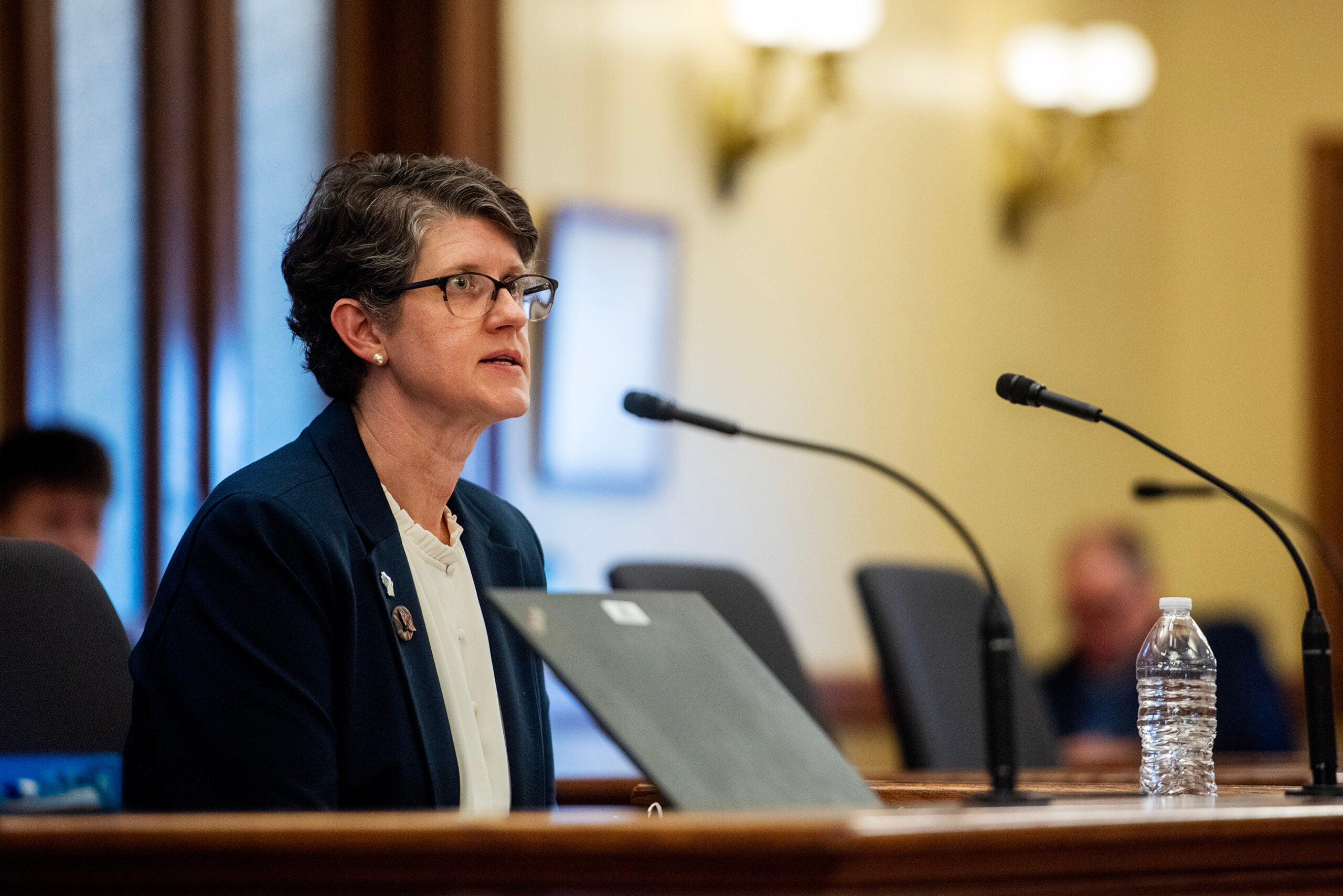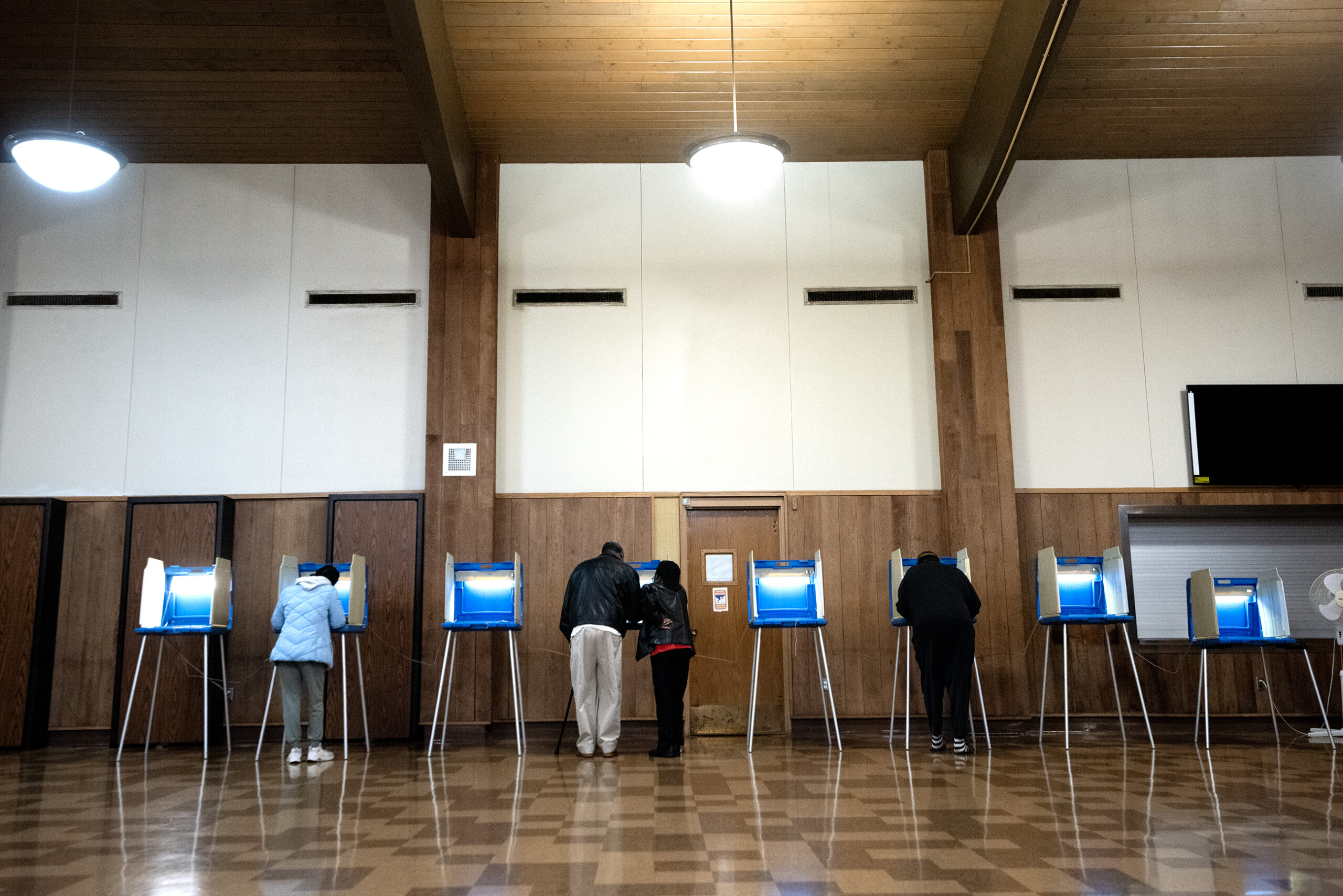A bipartisan group of state lawmakers is reviving a proposal that would change Wisconsin’s criteria for wiping a past criminal conviction from public view.
Currently, state law only allows someone to ask a judge for expungement if the crime was committed before they turned 25. That age requirement would be removed under a bill sponsored by Republican state Rep. David Steffen of Green Bay.
At a public hearing on the plan, Steffen said “arbitrary” limits shouldn’t stop people with criminal histories from turning over a new leaf.
News with a little more humanity
WPR’s “Wisconsin Today” newsletter keeps you connected to the state you love without feeling overwhelmed. No paywall. No agenda. No corporate filter.
“An individual that is trying to get back into work, we want them to do that whether their crime was committed as a 17-year-old or a 27-year-old,” he told the Senate’s Committee on Judiciary and Public Safety.
While the proposal would remove the current age limit, it would also make certain crimes — including stalking, violating a domestic abuse restraining order, criminal trespass, criminal damage to a business and traffic offenses — ineligible for expungement.
And, as is the case under the current law, expungement would only be possible for crimes other than violent felonies if someone has no other past felony convictions.
Someone would need to wait at least year after completing their sentence, before applying for expungement. That includes completing community supervision and paying any outstanding court fees and restitution.
Backers include employer groups, seeking clarity and expanded workforce
The bill specifies that employers cannot use an expunged conviction as a basis for denying someone a job. It also states that expunged convictions can’t disqualify someone from professional licensing.
That gives businesses a clear directive and will result in more people having a shot at good jobs, Steffen argued.
“When there is a lack of specificity, a lack of clarity, it opens up liability,” he said.
Along with the American Civil Liberties Union and the Wisconsin State Public Defender, supporters of the legislation include the conservative Badger Institute and employer groups like Wisconsin Independent Businesses, according to written testimony submitted before a public hearing this month.
Previous versions of the proposal have cleared Wisconsin’s Assembly, but languished in the Senate.
But, Steffen told the Senate’s judiciary committee he’s optimistic about the bill’s chances in the current session.
“I told the Assembly, ‘Don’t do anything with this … until we make some movement and actually get it out of the Senate,’” he said.
Ryan Berry is hopeful, as well. He was sentenced at age 26 in Wisconsin after pleading guilty to charges related to a theft he committed at 25. That left him just outside Wisconsin’s age limit for expungement.
Berry said he recovered from addition while in jail, and takes full responsibility for the impact of his crimes. Now, the 34-old-old owns a chimney repair business in Kansas, where he lives with his wife and two children.
“I like to consider myself kind of as living the American dream,” he said in an interview with Wisconsin Public Radio.
Still, Berry felt his past was unresolved, so he reached out an attorney and learned he wouldn’t qualify for expungement in Wisconsin.
Changes would take effect retroactively, include people who didn’t ask for and receive expungement at sentencing
Currently, a Wisconsin judge decides at the time of sentencing whether to allow for the future expungement of a charge — a requirement that Berry said shut him out of the process.
“The law also states that the convict must ask for (the) possibility of expungement the day of sentencing,” Berry wrote in testimony submitted to senators. “I was not aware of this law, nor would it had been on my mind as it was an emotional day preparing for my sentencing.”
The proposed changes would allow a judge to make the decision on expungement later on, once someone’s served their sentence. Additionally, the revisions would take effect retroactively to include crimes committed before the legislation is adopted.
While details of the plan could be a work in progress, Berry said he hopes the final product will open doors for others who put in the effort to clear their records.
“This is making it so that they cannot have a job or that are making it so that they don’t even get the first interview,” he said of criminal records. “It just takes a single decision made in your youth.”
Wisconsin Public Radio, © Copyright 2025, Board of Regents of the University of Wisconsin System and Wisconsin Educational Communications Board.







